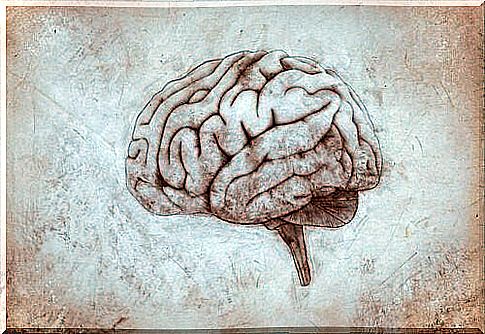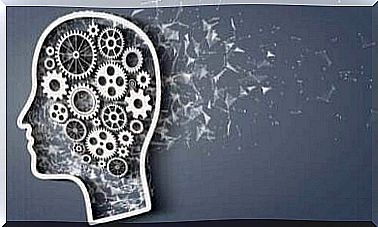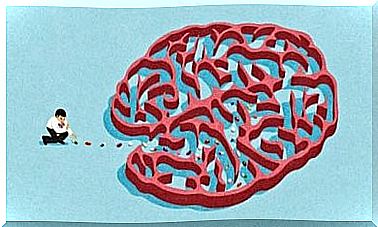Resistant Personality: Good Morning World, I’m Still Here!

There are people who have the ability to overcome major setbacks or very painful and emotional events. We can say that they have a very resilient personality. To develop a resilient personality, you must have a positive attitude and never stop trying.
The loss of a loved one, physical or mental abuse, natural disasters or mistakes are circumstances that put us to the test. However, you can develop the ability to be strong in difficult situations and swim against the current. This means that you can have a resilient personality.
There are two types of resilient personalities. First, it is the ability to protect one’s identity under the intense pressure of destructive conditions. On the other hand, there is the ability to maintain a positive attitude in painful situations. It is a dynamic process to adapt to adverse environments and traumatic experiences.
Suffering and the brain
Psychological disorder changes the brain. Being in a constant vigilant state generates cortisol levels that are unnecessary under normal circumstances. For example, our warning system needs cortisol to prepare our body in the event of an emergency. But when our cortisol levels are excessive and constant, it hinders growth. Furthermore, it can also affect our immune responses and our concentration level.
Testosterone plays a crucial role in stressful situations. Testosterone levels are especially reduced in hostile situations. This in turn reduces the individual’s assertive abilities. This leads to a lack of attention. Moreover, this kills the individual’s creativity and makes them repeat patterns of what they have already experienced.

Is resilient personality a categorization?
In cases of post-traumatic stress disorder, there may be a gradual difference between a non-resistant and a resistant personality. As a consequence, there are many degrees between both extremes.
For example, people who do not have a resilient personality reactivate memories of traumatic events more intensely and more often than those with a resilient personality. They do this compulsively and in the form of intrusive forms. These memories activate areas of the brain such as the locus coeruleus, amygdala, hippocampus and neocortex.
A resilient personality thus seems to be the result of several processes that counteract the effects of hostile situations. Dehydroepiandrosterone (DHEA) plays an important role in this. It is responsible for reducing cholesterol activity and also inhibits excessive glucocorticoids and glutamate.
Thus, it prevents heart attack and ischemic stroke. Experts have observed that, statistically, subjects with greater intellectual capacity and cognitive activity have higher resilience. In particular, they seem to be able to handle and treat trauma more easily.
Empathy, self-knowledge, a sense of humor, a positive approach to situations and a focus on the present are several of the abilities that resilient people have. In the same way , they are flexible people who are searching for a meaningful purpose in their lives. Furthermore, they have good social skills and know how to deal with frustration and insecurity.
People can build resilience
Our emotions and the way we handle situations are not as externally conditioned as they are internally. Thus, the key is always interpretation. Building resilience means understanding that negative emotions are blocking us and positive emotions are pushing us to change.
In particular, it develops the ability to have positive responses in adverse situations. In many cases, we do not have the power to change our circumstances. However, we can develop skills that allow for answers that help us cope with our difficulties.
There are many things we can do to achieve this. We can write about our history, help others, reduce our stress levels and be willing to reorganize our faith and our goals. By changing our paradigms, we can see the world and ourselves differently.

In the same way, we should start to consider conflicts as growth opportunities. Remembering how we overcame obstacles in the past will also help us build resilience.
To be strong, we need a great deal of perseverance and confidence. As we learn from the past and allow ourselves to experience strong emotions, we learn to deal with them in an intelligent way.









